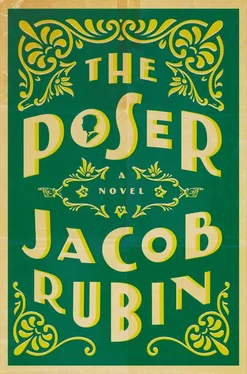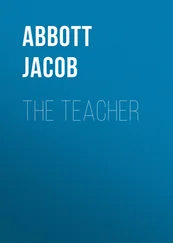“Your parents found out, I assume.”
“They did, yes. I don’t remember exactly when or how. My father, of course, was horrified. For months he wouldn’t talk to me. Neither he nor my mother. By abandoning medicine, I’d betrayed them. By choosing the world of finance, doubly so. Keep in mind, he was a European intellectual. All of this was foreign to them, and yet my father’s disapproval, which once might have paralyzed me, had no effect now. ‘What is it you do all day?’ he would say. ‘What does all this matter? It means nothing.’ But when he asked me this, I was wearing my finest Italian suit, driving them around in a chauffeured car, so his questions were barely audible, if you know what I mean. You could barely hear them over the shine of my cuff links, my watch. I distinctly remember my father getting smaller.”
“Money talks?”
“I think of it this way: My wealth was my moat. I felt it especially with my colleagues, men I had worked with ten hours a day for eight years. I knew their wives, their children, their mistresses, yet we didn’t know each other at all. We were all separated by our moats — our suits, our drivers. That’s how we wanted it. We were made wonderfully apart, by money.”
“I don’t quite understand. What happened? How was it you ended up here, as a doctor?”
“My father dropped dead of a heart attack.”
“I’m sorry.”
“So people say when a stranger dies.”
“How did you take it?”
“At the time I took it surprisingly well. I escaped into my work.”
“Hadn’t you already?”
“Such is the nature of escape: Since one can never truly accomplish it, one goes to further and further lengths trying to. Many nights I slept in the office. I traded day and night. My coworkers were perplexed, I think, and couched their perplexity, as many do, in jokes and nicknames. I was known as a ‘horse’—what we admiringly called our hard workers — but never before had I, or anyone at the office, steamed ahead with this kind of urgency: pacing the office day and night, yelling (something I never used to do) at subordinates who bungled my orders. And yet it worked. Watching money accrue in my bank account, watching certain stock prices rally still brought me a near-religious peace, and I thanked God that it could still be so, that money could be my medicine. Once a week I visited my mother, an occasion I very much dreaded, so I dressed in my finest camel-hair coat and treated her to very expensive meals. I gave her gifts: a fur stole, a jeweled pendant, objects she couldn’t pretend to want. My father’s death had obliterated her. I knew on some level, as everyone does, that I was not entirely well, but I believed that it would pass. A few weeks later the skin ailment appeared.”
“What ailment?”
“A rash on my fingertips that soon spread to my palms, up my arms, and down my back. It looked like a second-degree burn. Quite painful.”
“Did you go to the doctor?”
“I am a Jew, Giovanni. I went to many doctors.”
“And what did they say?” I asked.
“It was a food allergy, a rash, a bug infestation. The diagnoses were too diverse to be trusted. Within a month it had spread to my chin. I had to wear a handkerchief over my face. There were fewer handshakes, fewer drinks after work. I had gone from likably eccentric to dangerously so, dressed absurdly in huge wool coats with a bandana around my mouth. It was a panicked time. Some must’ve thought I was dying. There were moments when I myself did. Alone is when I felt safest. I have never been religious — was not raised to be — but I couldn’t help but wonder if I was being punished.”
“For?”
“Betraying my father.”
“I see,” I said. “And how did you find out the cause of it?”
“Accidentally,” he said. “I had taken a week off work. Some doctors recommended I do it. The stress of work and of my father’s death might, they hypothesized, cause this kind of spectacular nervous reaction. The theory never held much sway with me since my work, no matter how busy, always brought me more peace than anxiety, and yet here I was, away from the office, much improved. In just a few days, the rash receded entirely from my face and back. My fingers were clearing up, too. Imagine how relieved I was. Yet the rash was not eradicated. Indeed, when I paid for groceries or a carton of milk, the peeling worsened in my fingers, my skin itched terribly. So it was that I came to understand.”
“Understand what?”
“I was allergic to money. That week away from work, my skin was better at all times, except when I touched hard coin.”
“Is such a thing possible? Were you handling so much currency at the office?”
“The allergy, I soon realized, didn’t require physical contact with money. If I was making a phone call about a trade, for instance, the receiver irritated my ear. If I was sitting in my office — where stocks were bought and sold — my breath shortened.”
“You were allergic to the idea of money?” I asked.
“In a way, yes. I was allergic to those objects that through any concatenation of events led me to money. So I came to understand. Of course, it required much trial and error. I now consider it my first diagnosis as a psychoanalyst.”
“What then?”
“After much hand-wringing — all too literal, I’m afraid — I decided to visit a psychiatrist. Given my perverse history with the profession, you’ll understand my reluctance to do so, but I saw no other option. This was an ailment for the mind — a mental allergy, as it were — so I required a mind-doctor, a shrink, a second father.”
“What were you hoping to get out of your analysis?”
“The goal was simple: to rid myself of this skin problem and return, unimpeded, to work. That’s what I found so ironic. Mentally, as they say, I had never enjoyed my work more, yet my body was somehow revolting against it. Of course, my analysis changed everything.”
“How so?”
“To recapitulate all the reversals, revelations, frustrations, terrors, and insights that occur in successful analysis is to do it a grave disservice. Suffice it to say, I realized I was in the wrong line of work. Often the body cries out on the mind’s behalf. Such was the case with me — I told you mine was a forthright unconscious! The more we engaged in analysis, the more my skin cleared, yet the more my skin cleared, the more I loathed and feared my office. My associates, men I had worked with for over fifteen years, men whose company had brought me solace and sturdiness — they looked like cowards to me now, collaborators and liars. They lived in a mode of evasion. That’s what money seemed to me now: an exercise in postponement. Watching it accumulate brought me dread. When would I spend all this money? What would spending it do ? I’ll put it this way, though the words only skim the surface of the experience: The moat, the moat of money, protected me too much. It cut me off from the kind of human engagement I had so long run away from and now sought again. I realized I could not escape my father. Nor did I want to. My destiny — I use the word intentionally — was to become a psychoanalyst.”
“I think I know what you mean,” I said.
“Oh?”
“I, too, used a moat.”
“Yes? What form did yours take?”
“I played at being someone I wasn’t. Someone terrible. I did it for years.”
“Who was that?”
I said, “The man I tried to kill.”
• • •
So it began. As the doctor recounted his father’s death or discussed his start in the field of psychiatry, words, unbidden, rose in my chest. “My mother was murdered,” I declared. “I used to give these speeches. All of them lies.” In Orphels’s voice, I would speak. The way it came out, it felt closer to listening than talking. With each name I uttered — Max, Mr. Heedling, Lucy, Bernard — with each anecdote I shared (when I thought I was being booed the first time I performed at the Communiqué, when I first learned to flirt while aping Max at the train station), the more deliciously foreign it sounded. What a rare fellow, I caught myself thinking, this Giovanni the Impressionist.
Читать дальше












